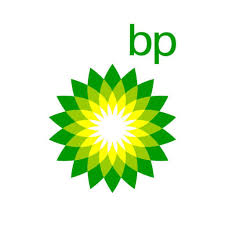
The recent $20.8 billion BP damages settlement includes $1.5 billion that can be funneled to a long list of Panhandle “economic development” expenditures, including economic development agency administrative costs, paying developer impact fees or can even reduce local property taxes.
The money is part of a multi-state $5.9 billion economic damages settlement between BP and fi ve Gulf Coast states plus numerous local governments. Florida’s portion is $2 billion; three-quarters ($1.5 billion) of which goes to eight “disproportionately affected” counties: Escambia, Santa Rosa, Okaloosa, Walton, Bay, Gulf, Franklin and Wakulla. The other half billion goes to Florida’s treasury.
The $2B in state lawsuit money doesn’t fall under Federal RESTORE Act authority like the $5.5 billion in Clean Water Act penalties and the $8.1 billion in natural resource damages that are also part of the total $20.8 billion settlement. The Panhandle’s take is being overseen by a non-governmental agency, TRIUMPH Gulf Coast, Inc., created by Florida’s legislature in 2013. The money will be invested for 30 years while it’s paid out in “economic development” grants, and anything left over reverts to Florida’s Treasury.
Okaloosa resident Jim Root, who works in Navarre, says he has a better idea: divide the money among the eight-county population. “Just send everybody a check,” he remarked. “No administrative cost, no fees. Just divide it up and cut a check.”
Dividing $1.5 billion equally amongst the 944,554 residents in the eight disproportionately affected counties would total $1,588.05 each, per an April 2014 population count from University of Florida’s Bureau of Economic and Business Research.
TRIUMPH’s five unelected board members will decide where the money goes. They are: Gulf Power CEO Stan Connally Jr.; current Gulf Power board member Allan Bense; Stephen Riggs IV, a CPA and partner at Carr, Riggs & Ingram accounting firm; Pamella Dana, IHMC Senior Strategic Advisor and former Executive Director of Florida’s Office of Tourism, Trade, and Economic Development — which oversaw the state’s quasi-governmental “economic development” agency Enterprise Florida; and Destin developer Bob Bonezzi .
The money is supposed to, among other things, generate maximum estimated economic benefits, increase household income in the disproportionately affected counties above the national average, expand or establish high-growth industries, invest in start up companies, provide management advice to companies, “provide outcome measures for programs of excellence support,” and “partner” with Tourist Development Offices and Chambers of Commerce.
Allowable uses include: An ad valorem tax reduction in the Disproportionally Affected Counties; Payment of impact fees imposed within the Disproportionally Affected Counties; Administrative funding for economic development organizations in the Disproportionally Affected Counties; Local match requirements for projects in the Disproportionally Affected Counties; Economic development projects in the Disproportionally Affected Counties; Infrastructure projects that are shown to enhance economic development in the Disproportionally Affected Counties; Grants to local governments in the Disproportionally Affected Counties to establish and maintain equipment and trained personnel for local action plans to response to disasters; Grants to support programs of excellence that prepare students for future careers at K-20 institutions with home campuses in the Disproportionally Affected Counties; Grants to the Florida Tourism Marketing Corporation for the purpose of advertising and promoting tourism, Fresh From Florida or related content on behalf of one or all of the Disproportionally Affected Counties; and TRIUMPH travel, investment fees and staff salaries.
The U.S. Justice Department announced the final $20.8 billion settlement October 5. BP was also assessed up to $700 million for potential problems down the road and $600 million in other penalties. A Justice Department summary of payments includes: Clean Water Act Civil Penalty: $5.5 billion; Natural Resource Damages: $7.1 billion; Early Restoration Money Previously Committed (partially paid): $1 billion; NRD Assessment Costs (States and U.S.): $350 million; Unknown Injury and Adaptive Management: up to $700 million; False Claims Act, Royalties on Oil, Response and Other Costs: $250 million; State and Local Economic Claims (separate agreement): up to $5.9 billion – Total: $20.8 billion. Earlier federal government settlements include: $90 million from MOEX Offshore 2007 LLC (2012), $45 million of which was dedicated to benefit the Gulf; $4 billion from , BP Exploration and Production Inc. (2013); and $400 million from Transocean Deepwater Inc. in criminal fines and $1 billion in civil settlement money (2013).
































